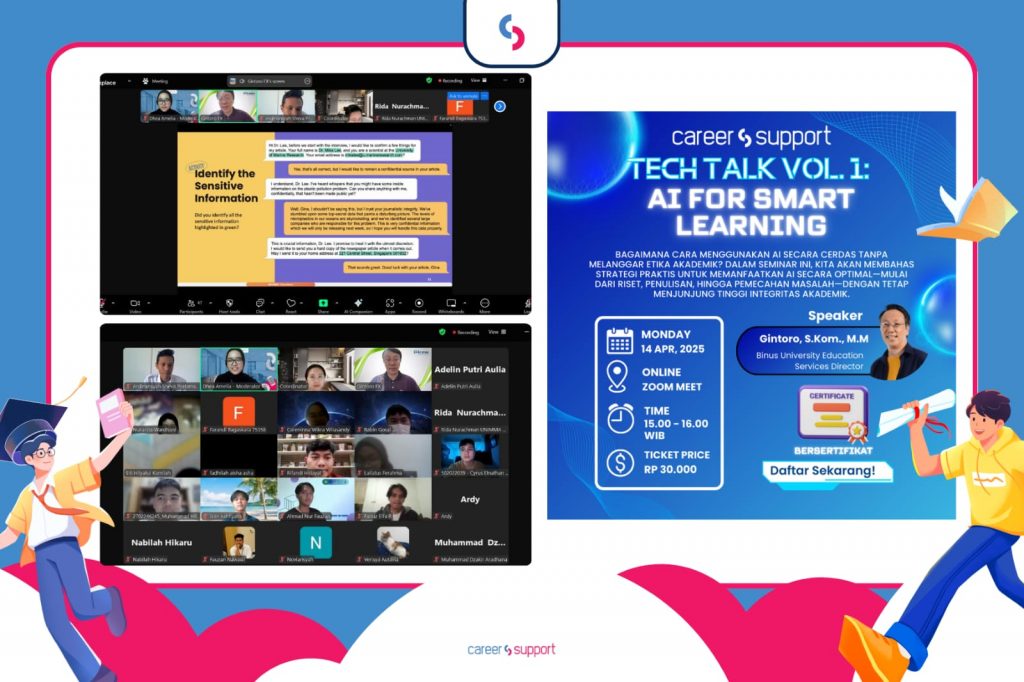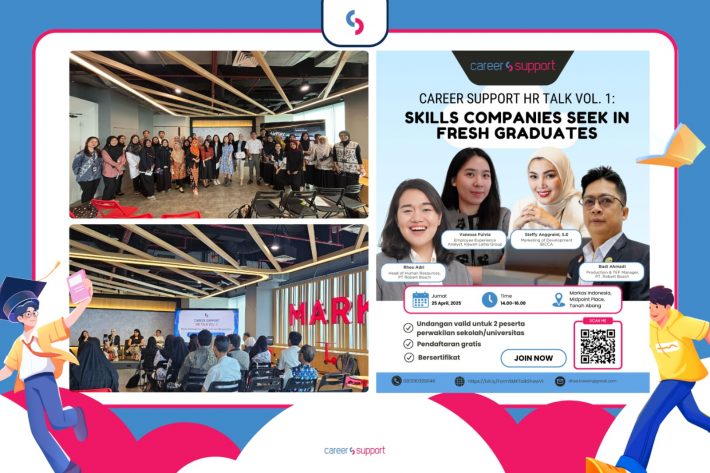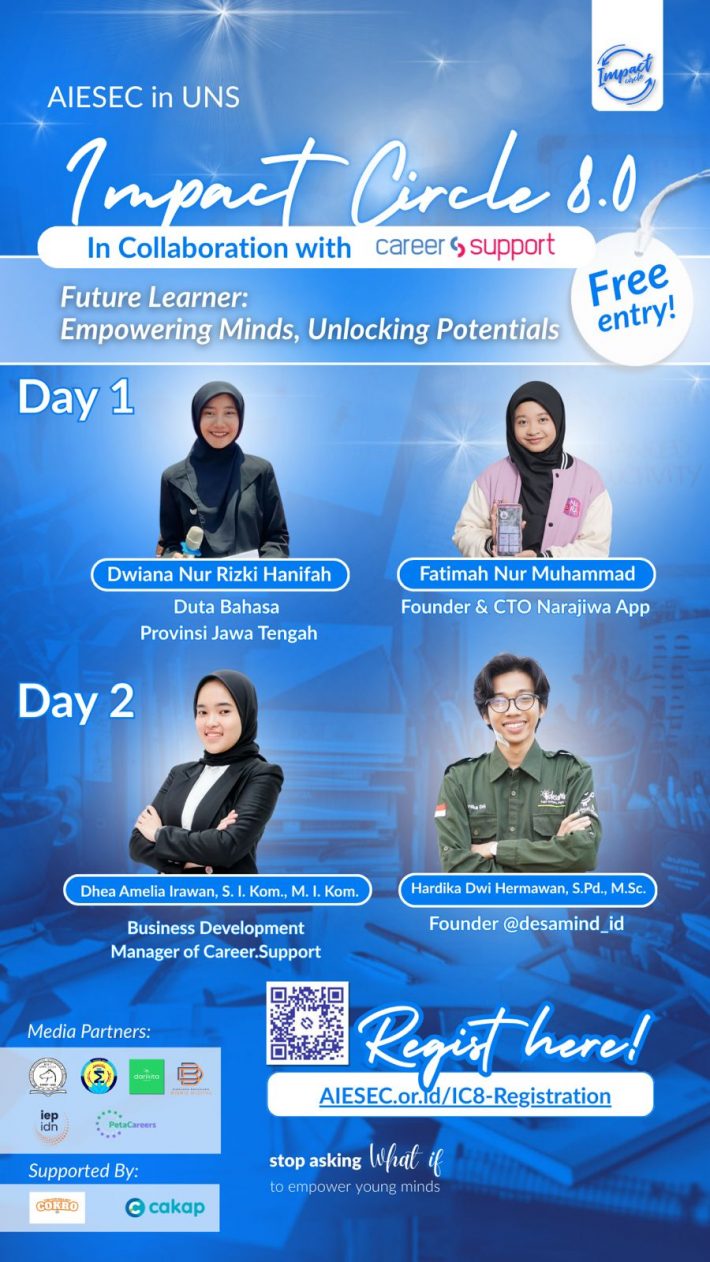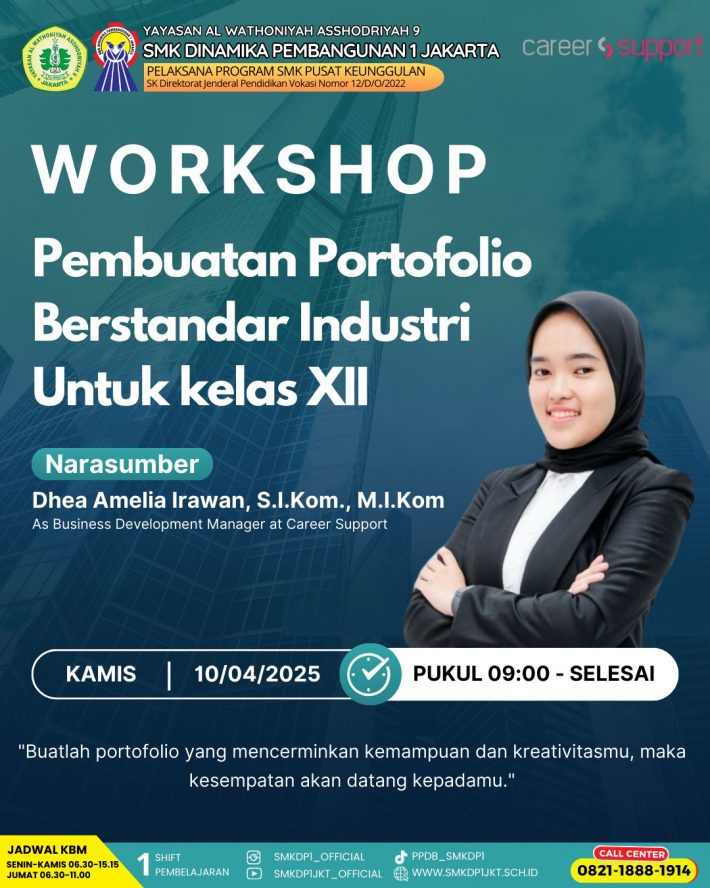Tech Talk Ai For Smart Learning

On April 15, our organization proudly launched the first edition of Tech Talk, a new monthly series designed to explore cutting-edge technology topics that are shaping the future. Vol. 1: AI for Smart Learning featured a compelling and insightful online session led by Mr. Gintoro, S.Kom, M.M., the Director of Education Services at Binus University. The two-hour event brought together students from various universities across Indonesia, uniting learners around one critical theme: how artificial intelligence (AI) can be used as a powerful ally in the academic journey.
AI in the Hands of Students
Mr. Gintoro began the talk by acknowledging the fast-growing presence of AI in all aspects of modern life—from customer service chatbots to personal productivity assistants. However, the spotlight of this session was squarely on AI in education. With a clear, engaging style, Mr. Gintoro emphasized how students today are in a unique position: they are the first generation to experience AI not as a future concept, but as an everyday study companion.
He introduced a variety of AI-powered tools that can support learning, help manage school projects, and enhance productivity. Some examples discussed included:
-
ChatGPT and other AI chatbots for brainstorming ideas, summarizing reading materials, or explaining difficult concepts.
-
Grammarly and other writing assistants that help improve grammar, tone, and structure in academic writing.
-
Notion AI and productivity tools that aid in task organization, scheduling, and even meeting notes.
-
AI-based presentation tools that simplify the creation of visually engaging decks for class projects.
What stood out in Mr. Gintoro’s explanation was his encouragement to explore these tools not as shortcuts, but as enhancers—support systems that can enable students to learn faster, manage time better, and work smarter.
The Ethical Use of AI in Education
While the potential of AI is undeniably exciting, Mr. Gintoro also issued a firm and timely reminder: AI should not be used to cheat. The temptation to let AI do all the work—completing assignments, writing essays, or generating answers during exams—is very real. However, he urged students to reflect on what they would actually lose by relying on AI inappropriately: the opportunity to grow, to understand, and to truly master new knowledge.
“Using AI to cheat is like going to the gym and letting someone else lift the weights for you,” said Mr. Gintoro. “It might look like progress on the outside, but in reality, you’ve gained nothing.”
He explained that educational institutions, including Binus University, are increasingly integrating AI literacy and digital ethics into their curricula. These initiatives help students understand not only how to use AI tools effectively, but also how to make responsible decisions in a world where AI is increasingly pervasive.
Student Engagement and Questions
Throughout the talk, students actively participated by asking questions via the chat box and Q&A session. Many were curious about:
-
How to cite AI tools when used in research papers.
-
What boundaries universities have set on AI-generated content.
-
Whether AI might eventually replace traditional learning methods.
Mr. Gintoro responded with thoughtful, nuanced answers. He acknowledged that AI policies are still evolving, and advised students to always refer to their universities’ academic integrity guidelines. Regarding AI replacing learning, he emphasized that while AI can assist, it cannot replace critical thinking, creativity, and emotional intelligence—skills that are uniquely human and essential for lifelong learning.
Building a Growth Mindset with AI
Another key theme that emerged during the session was the importance of developing a growth mindset in an age of AI. Rather than seeing AI as a threat or a crutch, students were encouraged to see it as a tool that rewards curiosity, discipline, and initiative.
Mr. Gintoro shared inspiring examples of students who have used AI to:
-
Develop innovative prototypes in class projects.
-
Translate academic papers into their native language to understand them better.
-
Practice foreign languages with AI conversation partners.
-
Prepare for job interviews using AI mock interview tools.
These stories illustrate how AI, when used mindfully, can unlock new possibilities in how students learn and prepare for the future.
The Future of AI in Education
In closing, Mr. Gintoro invited students to stay informed and actively engaged with AI trends, especially as the technology continues to evolve. He hinted that future classrooms might include AI tutors, personalized learning platforms, and data-driven academic support systems that adapt to each student’s needs and pace.
“AI is not here to replace teachers or students,” he said. “It’s here to enhance how we learn, teach, and grow together.”
He also encouraged attendees to continue learning about AI outside the classroom—through online courses, tech blogs, podcasts, and future events like Tech Talk.
A Strong Start for Tech Talk
The success of Tech Talk Vol. 1 demonstrates the eagerness of today’s students to engage with real-world technology topics that matter. With over 150 participants from more than 10 universities, the event created a dynamic space for knowledge sharing, ethical reflection, and future thinking.
As we prepare for the next Tech Talk in the series, we carry forward the enthusiasm and insights from this session. Our goal remains clear: to create a community where students, educators, and professionals come together to explore the transformative power of technology—responsibly, creatively, and collaboratively.


